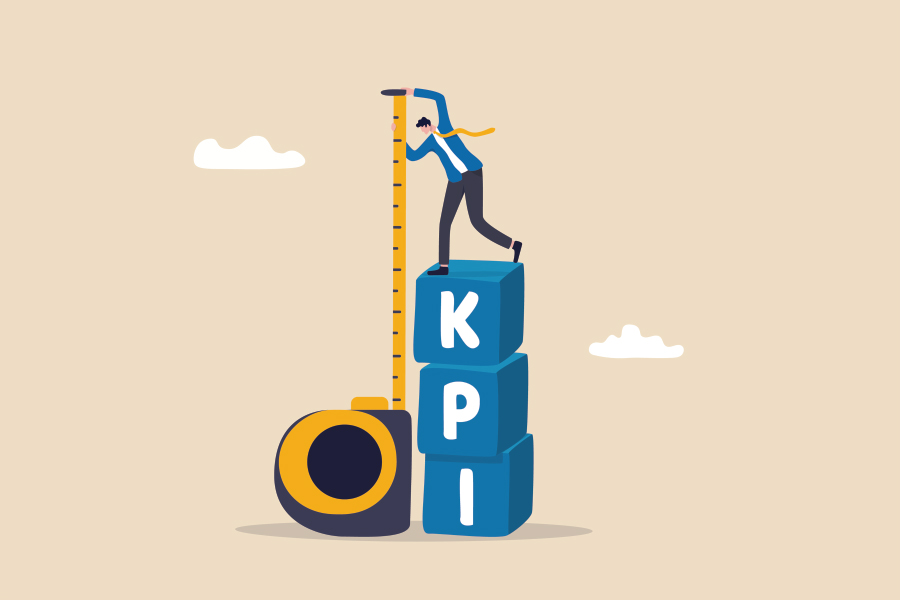Despite a gentle descent from its lofty heights during COVID, private aviation is retaining its allure as the best method for corporate fliers to get from point A to point B. Demand is driving an ancillary uptick in aircraft sales as people weigh the pros and cons of full ownership. But the wisdom of buying your own jet often depends on who’s flying where, and how often.
“From an economic perspective, it all starts with discussing how much they fly, where they fly, how many people are flying, and understanding their likes and dislikes from their current flying experiences,” according to Nick Copley, CEO of the Sherpa Report which advises clients on using private aviation. “If someone flies only a few flights a year, then chartering makes the most economic sense. However, if they fly for several hundred hours a year, owning an aircraft is probably the best way to fly.”
Copley cautions, however, the decision to buy an aircraft is not a straight line. “People want to buy planes for a variety of reasons, although economics is always part of the equation,” he said. “But people may also just want to own their own aircraft. Maybe their friends, neighbors or family have one, or maybe colleagues or competitors have one – the motivations can vary. Understanding all those elements helps to refine the advice.”
When it comes to making a sound economic decision, however, keeping up with the Joneses is probably not a good reason.
“Many would-be owners underestimate the ongoing costs of maintenance, storage, crew salaries, insurance and unplanned downtime,” Seth Rotman, Wheels Up senior vice president of private jets, told Business Travel Executive. “Maintenance alone can run into hundreds of thousands of dollars annually, even when things go smoothly. These are the hidden costs of ownership charter buyers like Wheels Up clients don’t deal with. We often get the question whether a client should continue with charter or buy their own aircraft but by the time we explain the differences, the conversation flips back to chartering.”
How Many Hours?
Copley makes a compelling economic argument for owning. “If you need to fly for a few hundred hours a year, then the economics of owning your own jet just makes sense,” he says. Alternative private flying options will be more expensive for a few hundred hours, he maintains. “In addition, when it’s your plane, you can customize it to suit your needs. You can lay out the cabin in a variety of styles. For instance, maybe the CEO wants a full bedroom and shower on board – that’s possible on a large, long-range jet. You can also keep business materials, or samples, or supplies on board and you can brand the interior furnishing and amenities with the company logo,” Copley notes. All of these may be important when a company is bringing clients and customers on board, bolstering the image of a successful company that owns its own jet, he says.
“Owning a jet gives you control and guaranteed availability, but it comes with significant responsibilities – high upfront costs, ongoing maintenance, insurance, storage, and staffing,” explains Rotman. “These long-term commitments can add up quickly.” On the other hand, he says choosing to charter the aircraft removes that complexity and still delivers the benefits of private aviation with access to flexible booking and the right aircraft for each mission.
There is also a misperception about jet use. Most think private flight is for C-Suite, but that only accounts for about 15 percent of hours. Most are for sales and marketing as well as customer service teams.
Referring to high-profile condemnation of private jet users like Taylor Swift and Elon Musk, Copley says it is a very visible asset that could signal a deal in the making as they can reveal some of the activities of its owners, whereas charter or fractional ownership is more anonymous.
Private aircraft are also a valuable asset, Rotman explains. There are times, however, when it isn’t available for whatever reason, so leaning on charter alleviates that worry. Charter companies can access a variety of aircraft. “Chartering can be a smart solution that supports corporate flight departments or helps avoid the hidden costs of ownership,” he argues. In addition, he points to the Wheels Up partnership with Delta, which can blend private and premium commercial travel seamlessly.
Time Machine
“The focus on jet ownership is to save time as the most valuable asset to corporate executives and ultrahigh net worth travelers,” says Adam Miller, GoRentals senior director business development. “You can always make more money and acquire more possessions, but you can’t make more time. Private flights are a massive time saver—ease of coming in and out of FBOs, and flexibility to make your own schedule.”
However, Miller says that leaves arranging ground transportation as a challenge for private passengers, which is why all of this should be coordinated up front. “If the vehicle is not perfect and waiting on the ramp prior to arrival, the executive may experience delays while waiting for the vehicle,” he says. “This could very well cause a late arrival to an important meeting, or even worse, it could create a butterfly effect of tardiness on a tight multileg trip. That is why we, as a company, live in the aviation community so we know the requirements.”
Like the aircraft itself, Go Rentals ensures ground transport is kitted out and sanitized by its “carcierge” team which also tracks the aircraft by tail number to make sure ground transportation is not tripped up by an “early arrival.”
“As soon as the plane’s wheels are chocked, a Go Rentals Carcierge drives the vehicle to the plane’s exit so that the executive can step directly out of the plane and into the vehicle to get to that meeting quickly,” explains Miller.
Take Some Advice
The hidden costs of owning your own aircraft and the need for supplemental lift is why you need an advisor. “If you have a good, experienced advisor, there really shouldn’t be any hidden costs,” Copley says. “They will conduct thorough research and an in-depth inspection before making a purchase. This avoids any surprises after you acquire the aircraft.”
Often, prospective buyers enquiring about purchasing an aircraft start and stop with the aircraft price. But Copley cautions, the ongoing fixed and variable operational costs are a significant part of any planning budget. “In total, these can easily be over $1 million a year and rise to several million for large jets. A good advisor will walk through all these and create a multi-year forecast and plan.”
And for corporate travel buyers, the fact that supplemental lift will be needed, regardless of aircraft ownership, means creating tight relationships with charter companies who can guide the decision making.
“There are a variety of options available to provide the supplemental lift, from having a fractional share to a jet card to one-off charters,” advises Copley. “Which one of these is most appropriate will depend on how often the company needs supplemental lift and the type of missions that need to be fulfilled. If it’s only once or twice a year, then charter will work just fine. If it’s over 50 hours a year, because of all the additional flying time, then buying a fractional share can be the best option.”
Rotman agrees. “Even when a company owns an aircraft, it may not always meet every need, whether due to capacity, range, or availability,” he says. “The key is to make an assessment up front, decide how much time is needed, and then build relationships with providers in advance.”
The Value Proposition
One of the benefits of charter companies is the curation and execution of the entire experience of getting to your destination. “Today’s travelers, especially younger ones, are prioritizing access over ownership. They want flexibility, ease, and transparency without the responsibility of managing an aircraft,” Rotman notes. “Our advice – think about what matters most: Time, convenience, and control.”
The value of a good charter company means that all facets of the mission are covered – catering, crews, fixed base operations are all coordinated by the company to ensure smooth travel. FBOs are an integral part of the mission whether they host the basing of an aircraft or are at a destination, making charter companies a valuable resource for ensuring a smooth experience.
“FBOs serve as the base for privately owned aircraft and everything general aviation related,” says Signature Aviation’s David Buritica-Hernandez. “They provide hangar space, fuel, and support services like towing, and, in some cases, maintenance and catering. FBOs are also a key part of the passenger experience, offering lounges, concierge services and ground transportation. For owners, selecting the right FBO means balancing location, service quality, safety standards and costs. For aircraft that aren’t based at an FBO, FBOs still play a crucial role in providing essential services during trips through the delivery of ground logistics.”
Buritica-Hernandez explained the choice of an FBO could be up to the pilots who are chasing loyalty points such as Signature TailWins program, better fuel prices or convenience.
“FBOs actively engage with aircraft owners, operators and management companies to build relationships,” he explains. “High-touch service, consistent reliability, premium facilities. Owners do weigh in on base selections, especially when it involves long-term hangar space or preferred handling arrangements. For day-to-day operations, and at FBO decisions, pilots are much more influential.”
Ameliorating Ownership Costs
“Charter companies are often also aircraft managers who manage aircraft for their owners,” Copley says, noting that having an aircraft manager to schedule your aircraft when it is not being used could make ownership less costly. “Benefits include discounts on fuel, pricing incentives for maintenance and access to a deep pool of talent for hiring staff and aircraft crews.”
Considerations in working with a charter company includes whether they are good at putting charter hours on your plane, Copley says. “Thinking about chartering out your plane requires an experienced charter/management company. Do they have other planes of your type, how many hours a year can they put on a plane, do they offer any guarantees in this area? Think and talk through your requirements and any restrictions. A chief consideration is whether you need the plane often on short notice which can hinder a management company’s ability to book charters.”
It could also require changes to the aircraft. “Considerations also include passengers and pets as well as routes. Where don’t you want the plane to fly? Does chartering require a homogenous refit to ensure the cabin is optimally configured for charter? How is the connectivity, which is an increasingly important requirement for most private aviation travelers.”
There is a lot to consider in whether or not to become an aircraft owner, but there are also many advisors who can walk you through your needs.










